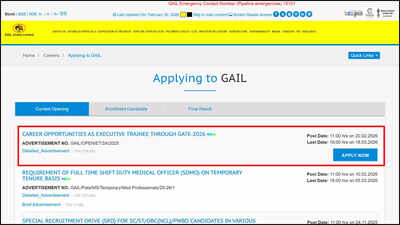Pennsylvania’s public universities to open new learning paths for students with course sharing initiative

In a promising shift for students across Pennsylvania, the state’s public university system, known as PASSHE (Pennsylvania State System of Higher Education), is launching a new course-sharing initiative that could expand academic access and flexibility like never before. The move, backed by a $536,000 grant and national support, is designed to give students at PASSHE universities the ability to take advanced, specialised classes offered at any campus in the system, regardless of where they are enrolled.For students, especially those from rural areas or lower-income families, this could dramatically reshape what college looks like, and what it can deliver.
One student, ten campuses
Most students in the PASSHE system pick universities close to home. It’s a practical decision, often tied to affordability, family responsibilities, or job commitments. But it can come with academic trade-offs. Not every PASSHE university offers the same courses or has faculty for every niche subject.Now, that’s changing. With course sharing, a student studying in a small-town campus can enrol in a specialised data science, healthcare, or foreign language course being offered at a larger urban university within the same system. And they can do it without ever leaving their hometown or paying a higher tuition.This model gives students more control over their academic path, opening up opportunities that were previously out of reach simply because of where they studied.
Expanding choices without raising costs
What makes this even more impactful is that it’s happening without increasing the financial burden on students. PASSHE has frozen in-state tuition at under $8,000 a year for the seventh consecutive year, making it one of the most affordable higher education systems in the country.In an era when students and families are weighing the cost of a degree more carefully than ever, PASSHE’s course-sharing initiative adds significant value to an already cost-conscious model. Instead of being boxed in by what their home campus can offer, students now have a wider academic menu, without paying a single rupee more.For first-generation college-goers and working students, who often make decisions based on what’s available locally, this flexibility could be the deciding factor between staying enrolled and dropping out.
Rural students, real impact
The benefits are especially significant for rural students. Many PASSHE universities serve small towns and less populated counties where course variety is often limited due to staffing shortages or lower student enrolment. For years, these students have had fewer choices, often settling for broader degrees instead of diving deep into their fields of interest.Course sharing changes that. It brings the entire state system’s faculty expertise to every student’s fingertips. A rural education major can now take an advanced psychology elective from another campus. A computer science student from a smaller school can access specialised AI courses being taught elsewhere in the system.This flexibility not only improves academic outcomes but could also help Pennsylvania build a more robust homegrown workforce. Many students want to stay in their communities after graduation. By giving them access to in-demand courses in healthcare, teaching, tech, PASSHE is investing in local talent, not just higher education.
Seamless learning across campuses
To support this transformation, PASSHE is also rolling out a shared digital platform that helps students register for, pay for, and earn credit from courses across campuses. For students, this means less red tape and more time focused on learning.The system is also piloting the initiative across select schools, with guides and best practices being developed for broader implementation. A $10,000 grant from the National Association of System Heads will support the documentation and scaling of this model, making PASSHE a potential blueprint for other state systems.
A future where students don’t have to settle
This shift may seem administrative on the surface, but for students, it’s deeply personal. It’s the difference between having one path and having options. It means not having to choose between staying close to home and pursuing your academic passions.It also sends a clear message: higher education doesn’t have to be expensive to be expansive. With smart reforms and system-wide cooperation, public universities can meet students where they are—both physically and academically.In the long run, PASSHE’s course-sharing model might become a quiet revolution in public higher education. But for now, for students across Pennsylvania, it simply means more choices, more opportunity, and more reasons to believe that a quality degree is within reach.






